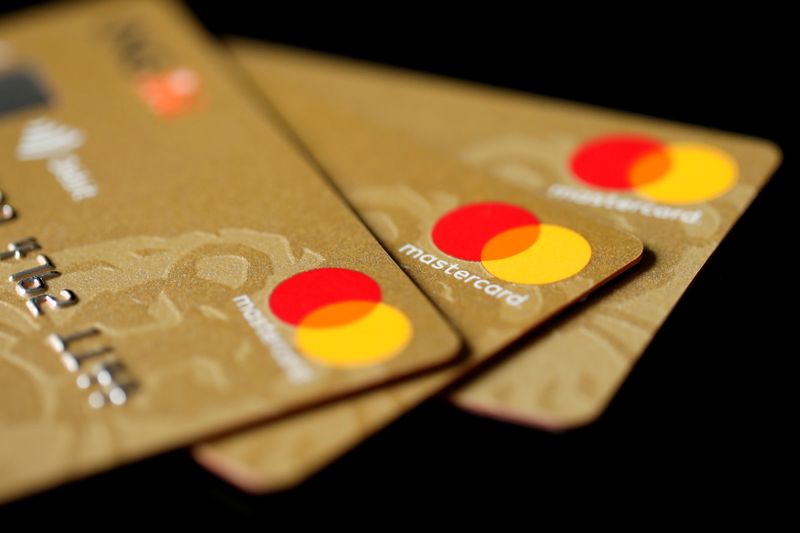By David Henry
(Reuters) - Big U.S. banks are prepared for credit-card balances to start ticking up again this year as pandemic restrictions ease and stimulus checks stop arriving, setting up the industry for a bump in one of its most profitable businesses.
Lenders, including Capital One, Citigroup (NYSE:C) and JPMorgan, have been sending out more promotions to enroll new customers and encourage borrowers to spend, said Andrew Davidson of marketing-tracker Mintel Comperemedia. Some 260 million offers were sent in March, the firm estimates.
Banks have increased digital marketing, too, on Facebook (NASDAQ:FB), Instagram, video sites and podcasts, he said.
"The big banks are ramping up in anticipation of the recovery post-pandemic," Davidson said. "They are really trying to make up lost ground from last year."
At the same time, lenders have been easing credit standards, according to a recent Federal Reserve survey and public comments by bank executives, including from Bank of America Corp (NYSE:BAC).
The change in posture is a stark difference from last year when lenders halted most card offers and pulled back on credit limits, worried that skyrocketing unemployment would create major loan losses.
The losses did not happen. Instead, the U.S. government sent out stimulus checks, offered enhanced jobless benefits and propped up small-business owners with forgivable loans. That allowed many credit-card reliant Americans to spend while also paying down balances. Others leaned on higher housing prices to borrow cheaply against their homes rather than use plastic. Altogether that left card businesses in the lurch – still profitable, but pulling in less revenue.
Card balances declined 14% during the pandemic, according to data https://www.newyorkfed.org/microeconomics/hhdc from the Federal Reserve Bank of New York. The portion of accounts with revolving balances fell to 39.7% at the end of 2020 from 44.1% a year earlier, according to the American Bankers Association.
Quarterly financial reports from major card lenders, including JPMorgan Chase (NYSE:JPM), Citigroup and Capital One, showcased those trends. But as pandemic lockdowns have started to ease – the return of indoor dining, travel restrictions lifted, concert announcements, offices reopening and masks coming off – executives have expressed optimism about consumer spending and borrowing ahead.
That is particularly true for rebounding card charges for travel and entertainment, which were down 80% at the beginning of the pandemic, Capital One CEO Richard Fairbank told analysts last month.
Capital One is encouraging the spending revival by gradually increasing credit limits, he said. "That represents an extra part of growth opportunity," Fairbank said.
'MORE ENTICING'
Even as balances fell, the number of card accounts increased during the last two quarters and a decline in credit lines stopped in the March quarter, according to the Fed data.
The banks declined to comment on their plans beyond their public statements.
What does it all mean for credit-card borrowers? It largely depends on whether they will be able to maintain enough income to cover their spending when they can go out to dinner and travel again.
Any shortfalls would be sweet spots for banks. The average credit-card rate is over 16%, with the highest at 25%, according to CreditCards.com.
The APRs have remained high, even as the Fed has kept overnight rates near zero and as most conventional mortgages cost a little above 3%.
That helps banks earn twice the return on assets with cards compared with other businesses. Now that the industry has a better feeling about the economy, banks will try to get customers to borrow more on cards, said Portales Partners analyst Charles Peabody. "They do have a good sense of consumer behavior," he said. "They will make it more enticing."
